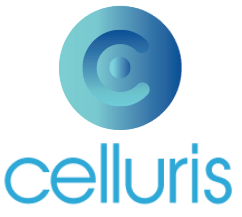Multiple myeloma is a type of cancer that affects plasma cells, which are bone marrow cells responsible for producing antibodies that combat infections. In multiple myeloma, these plasma cells become abnormal and multiply rapidly, compromising the production of other blood cells. As a result, patients may develop anemia and have a higher risk of infections. Additionally, malignant plasma cells produce an abnormal protein called monoclonal protein, which accumulates in the blood and urine. The diseased cells can also damage bones, causing pain and spontaneous fractures.
New Hope for Patients with Refractory or Relapsed Multiple Myeloma
Patients with refractory or relapsed multiple myeloma, when the disease returns after a complete remission, will have new opportunities through advanced studies using CAR-T cells. Following the success of CAR-T cell therapy in treating hematological cancers, recent research shows promising results with the use of CAR-targeted T cells against the B-cell maturation antigen in patients with relapsed or refractory multiple myeloma. Recently, the FDA (Food and Drug Administration) approved two therapeutic options using CAR-T cells for the treatment of this type of cancer.
Advances in CAR-T Therapy: New Hope for Multiple Myeloma Patients
In recent years, chimeric antigen receptor (CAR) T-cell therapy has emerged as a revolutionary approach in treating hematological cancers. Recently, this therapy has shown remarkable initial responses in patients with relapsed or refractory multiple myeloma, leading to clinical approval by the U.S. Food and Drug Administration (FDA). However, despite initial success, long-term remissions remain rare, and researchers are committed to overcoming the challenges associated with therapy resistance.
The Challenge of Resistance in CAR-T Therapy
The main obstacle to the prolonged efficacy of CAR-T cells in treating multiple myeloma is their loss over time post-infusion and inhibition by the tumor microenvironment (TME). Multiple myeloma is characterized by an immunosuppressive TME, rich in cancer-associated fibroblasts (CAFs), which play a crucial role in disease progression. Recent studies using multiple myeloma models have shown that CAFs not only inhibit the antitumor activity of CAR-T cells but also promote the progression of multiple myeloma.
CAFs express molecules such as fibroblast activation protein and lymphocyte activation gene 7 signaling molecule, making them attractive targets for immunotherapy. To overcome CAF-induced inhibition of CAR-T cells, researchers have developed dual-targeted CAR-T cells, aimed at both multiple myeloma cells and CAFs. This innovative approach has significantly improved CAR-T cell function, representing a new strategy to overcome therapy resistance in multiple myeloma.
Recent FDA Approvals: Idecabtagene Vicleucel and Ciltacabtagene Autoleucel
Two significant advances marked the treatment of multiple myeloma with the recent approval of two CAR-T therapies by the FDA. These approvals not only expand therapeutic options but also offer new hope for patients facing this challenging condition.
On April 4, the FDA approved Idecabtagene Vicleucel for the treatment of adult patients with relapsed or refractory multiple myeloma after two or more lines of therapy. This approval was based on the results of the KarMMa-3 study, the only phase III study to evaluate a CAR-T cell therapy in a population exclusively composed of patients with relapsed and refractory multiple myeloma. The study included 386 patients, comparing the efficacy and safety of Idecabtagene Vicleucel with standard treatment. The results showed that Idecabtagene Vicleucel was superior in terms of progression-free survival, with a 51% reduction in the risk of progression or death. Additionally, the response rate was significantly higher, with 71% of patients responding to the treatment compared to 42% in the control group.
The next day, on April 5, the FDA approved Ciltacabtagene Autoleucel for patients who failed at least one prior line of treatment, including a proteasome inhibitor and an immunomodulatory agent, and who are refractory to lenalidomide. This therapy is the first to be approved for second-line treatment of multiple myeloma targeting the B-cell maturation antigen (BCMA).
The approval of Ciltacabtagene Autoleucel was based on the CARTITUDE-4 study, which randomized 419 patients between treatment with Ciltacabtagene Autoleucel and standard treatment. After a median follow-up of 15.9 months, treatment with Ciltacabtagene Autoleucel demonstrated a 59% reduction in the risk of disease progression or death, with a response rate exceeding 84.6%.
Hope and better quality of life for patients
These CAR-T therapies offer new hope for patients facing resistance to traditional treatments. As research progresses, innovative strategies such as dual-targeted CAR-T cells promise to further improve outcomes for multiple myeloma patients, providing longer-lasting remissions and better quality of life.


